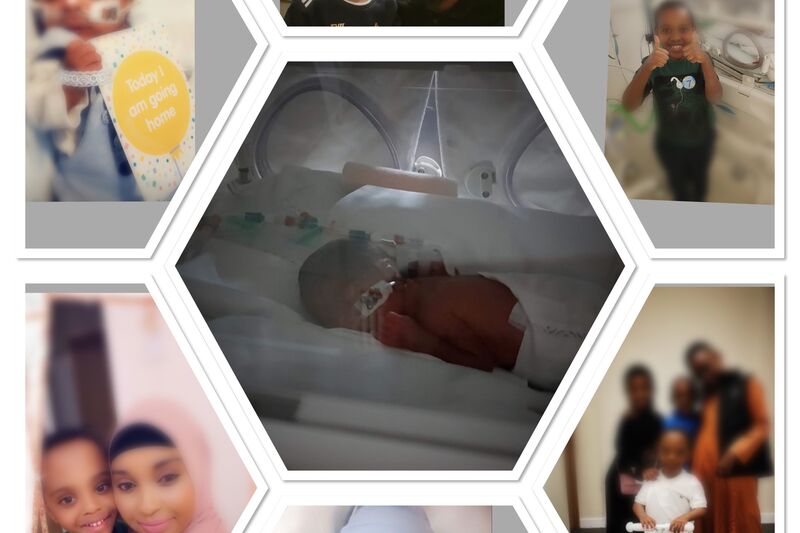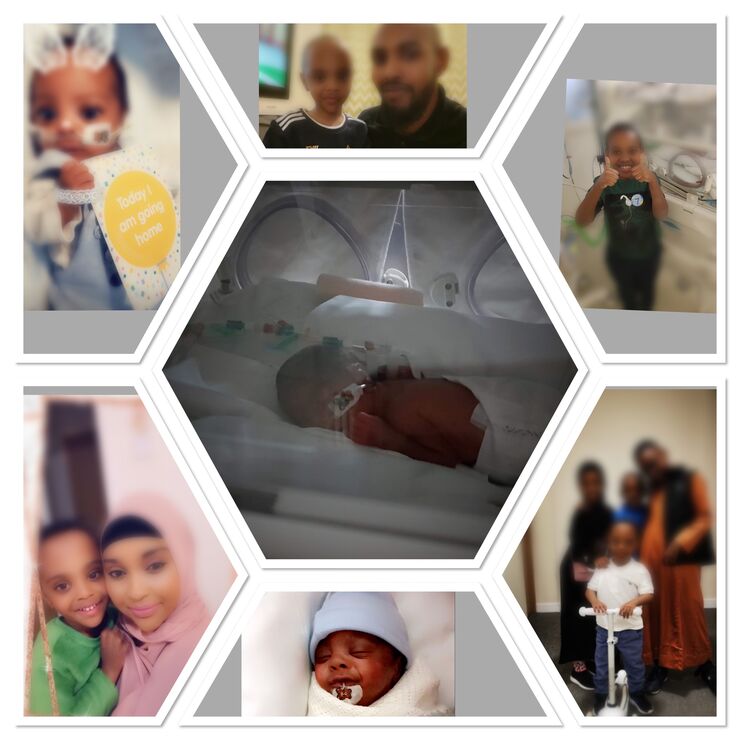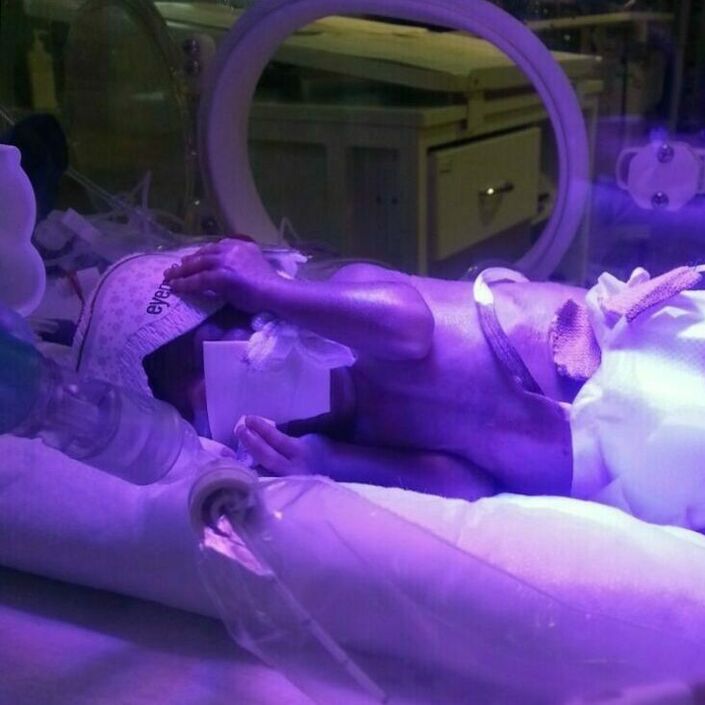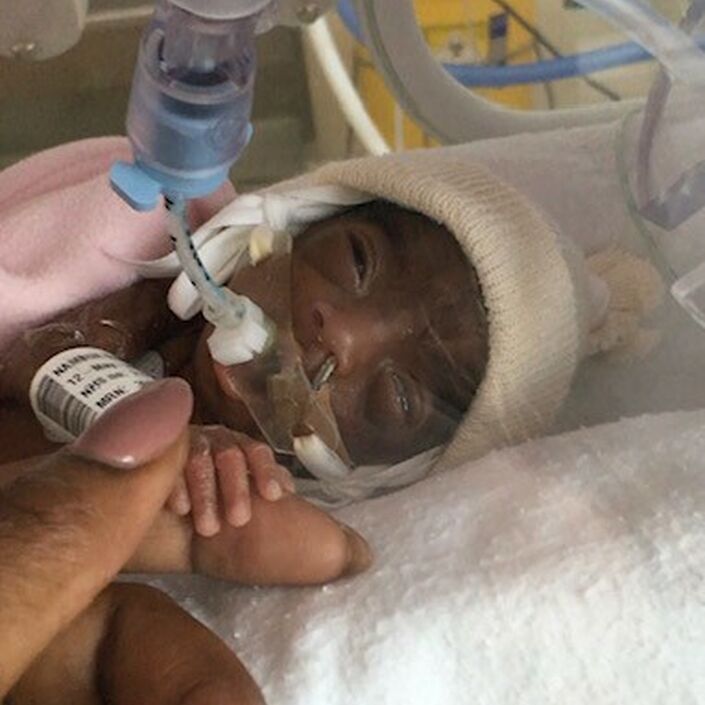I have five children - Ayub, Jannah, Safa, Bilaal and Adam, and three of them were born prematurely. My daughter Jannah was born at 23 weeks, but she sadly passed away. She would be nine now. My daughter Safa was born at 35+4 and Adam was born at 26+5 weeks.
I had two emergency c section births with Bilaal and Ayub, before my extremely premature births with Jannah and Adam. I have since been diagnosed with cervical incompetence and the doctors shared with me that there are a few studies that have linked fully dilated emergency c section and cervical incompetence.
33 years ago, my brother was born premature but other than him I didn’t know anyone who had a premature baby before. My concern mainly was the number of weeks at which they were born; my little brother was born after 29 weeks so I was worried about the extreme prematurity.
My emotions were going up and down and I just didn’t know if it was normal to have such premature babies – it felt like a rollercoaster.
I spent a lot of time on social media looking for other people’s stories to find out if anyone was going through a similar experience to me. Reading stories about other people’s experiences can really change their whole day.
When Jannah was born at 23 weeks and then passed away, I felt disconnected from it. I was told to be grateful that I had my first-born, Ayub, but I found it really hard. The post-natal ward was the hardest experience – it was so difficult to be surrounded by other babies when a baby is in NICU or if you’ve lost a baby. My husband was my absolute rock and I felt that I could speak to him about it which was so important for me.
My advice for any husband or partner is that words don’t always help – it’s the listening and just being there. We need someone to offload to.
After I lost Jannah, two weeks later my mum was diagnosed with thyroid cancer. Everything became so overwhelming. I spent the whole summer with my mum while she had treatment, but then when I came home, I was pregnant was with Safa, I had to focus not just on my pregnancy but my mum, too.
When we were told Safa was a girl, I started crying - I was so emotional and holding my breath.



